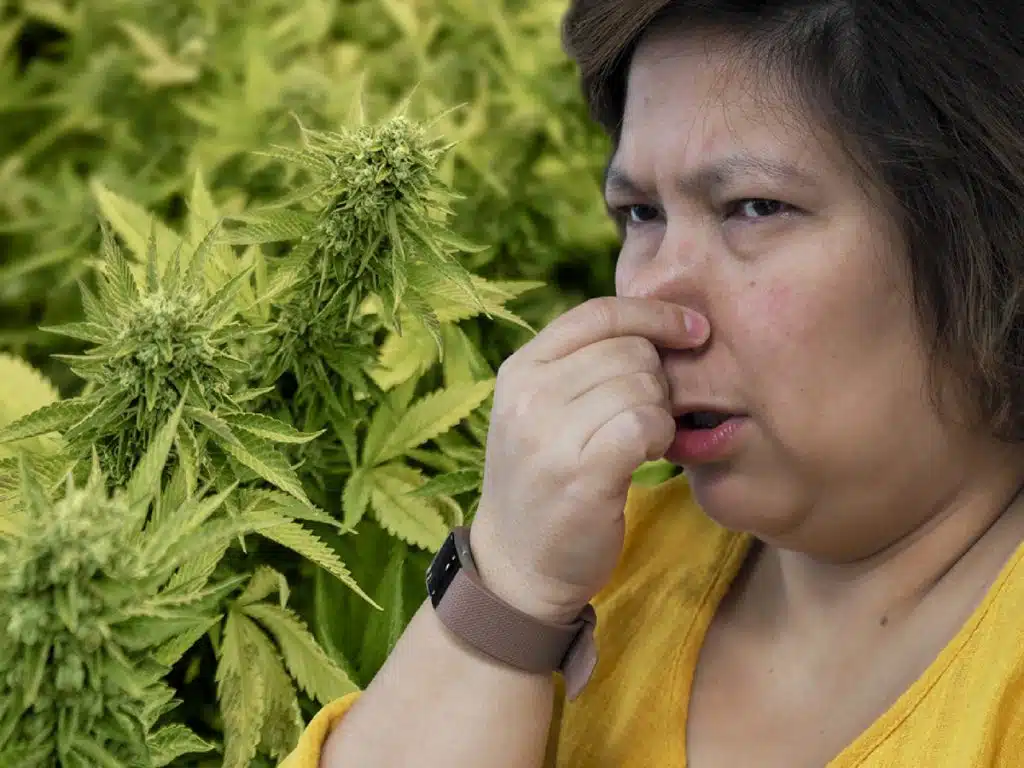Exploring The Role Of Weed In Academia

Exploring The Role Of Weed In Academia
Welcome to another exciting blog post where we delve into the fascinating world of cannabis and its influence on various aspects of our lives. Today, we will be exploring the intriguing role of weed in academia. Cannabis has been a subject of interest and controversy for many years, and its impact on education and scholarly pursuits is no exception. Join us as we uncover the intersection of cannabis and academia, and how it has shaped the educational landscape.
The History of Cannabis in Education
To truly understand the role of weed in academia, we must first explore its historical significance. Cannabis has a long and storied past, with evidence of its use dating back thousands of years. Ancient civilizations, such as the Egyptians and the Chinese, recognized the medicinal properties of cannabis and incorporated it into their traditional practices. In academia, cannabis has been studied for its potential therapeutic benefits and its impact on cognitive function.
Cannabis Research and Studies
In recent years, there has been a growing interest in conducting research on cannabis and its effects on the brain and learning. Academic institutions and researchers have been exploring the potential benefits and risks of cannabis use, particularly in relation to cognitive abilities, memory, and attention span. These studies aim to provide a deeper understanding of how cannabis may impact academic performance and learning outcomes.
Cannabis and Student Culture
One cannot discuss the role of weed in academia without acknowledging its presence in student culture. Cannabis has long been associated with college campuses and the stereotypical image of the “stoner” student. While it is important to recognize that not all students partake in cannabis use, it is undeniable that it has become a part of the college experience for many. From dorm room smoke sessions to cannabis-themed events, weed has found its place in student culture.
Cannabis and Academic Disciplines
The influence of cannabis extends beyond student culture and into various academic disciplines. For example, in fields such as pharmacology and neuroscience, researchers are studying the potential therapeutic applications of cannabis compounds like THC and CBD. Additionally, sociology and anthropology scholars are examining the social and cultural implications of cannabis use, including its impact on marginalized communities.
Cannabis Education and Courses
As the perception of cannabis evolves, so does its place in academia. Some universities and colleges have started offering courses and programs focused on cannabis studies. These courses cover a wide range of topics, including the history of cannabis, its cultural significance, the science behind its effects, and the legal and regulatory frameworks surrounding its use. These educational initiatives aim to provide students with a comprehensive understanding of cannabis and its impact on society.
Cannabis and Medical Schools
In the realm of medical education, cannabis is increasingly being incorporated into the curriculum. With the growing acceptance of medical marijuana, it is crucial for future healthcare professionals to have a solid understanding of its therapeutic potential and how it can be safely and effectively used to treat various conditions. Medical schools are now including modules on cannabis in their programs, ensuring that future doctors are well-equipped to navigate this evolving field.
Cannabis and Research Funding
The legalization and decriminalization of cannabis in many regions have opened up new opportunities for research funding. Academic institutions are now able to secure grants and funding to conduct studies on cannabis-related topics. This influx of funding has allowed researchers to explore the potential benefits and risks of cannabis use in greater depth, contributing to the growing body of knowledge in this field.
Cannabis and Academic Freedom
The role of weed in academia also raises important questions about academic freedom. As cannabis becomes more accepted and legalized, scholars and researchers are able to explore this topic without fear of professional repercussions. This newfound freedom allows for open and honest discussions about cannabis, its effects, and its potential applications, fostering a more inclusive and diverse academic environment.
Why Academia is Important
Academia plays a crucial role in learning about topics such as weed for several reasons:
-
Rigorous Research: Academic institutions provide a platform for conducting rigorous scientific research on cannabis. Through controlled studies, experiments, and peer-reviewed publications, academia ensures that the information and knowledge about weed are based on evidence and reliable data. This helps to dispel myths, misconceptions, and biases surrounding cannabis.
-
Expertise and Specialization: Academia brings together experts and scholars from various disciplines who specialize in studying different aspects of cannabis. These experts contribute their knowledge and expertise to advance our understanding of the plant, its chemical compounds, its effects on the body and mind, and its potential therapeutic applications. Their research findings and insights help to inform public policy, medical practices, and societal attitudes towards cannabis.
-
Education and Awareness: Academic institutions offer courses, programs, and workshops that educate students and professionals about cannabis. These educational initiatives provide a comprehensive understanding of the plant, its history, cultural significance, legal frameworks, and scientific research. By learning about cannabis in an academic setting, individuals can make informed decisions, challenge stereotypes, and contribute to the responsible use and regulation of cannabis.
-
Policy and Regulation: Academia plays a vital role in shaping policies and regulations related to cannabis. Through research, analysis, and expert opinions, academic institutions provide evidence-based recommendations to policymakers. This helps in developing effective and balanced regulations that consider public health, social equity, and economic factors. Academia also contributes to the ongoing dialogue and debates surrounding cannabis legalization, ensuring that decisions are informed by scientific knowledge and societal needs.
-
Social and Cultural Impact: Cannabis has a significant social and cultural impact, and academia helps to explore and understand these dimensions. Through sociological, anthropological, and cultural studies, academia examines the role of cannabis in different communities, its historical significance, and its influence on art, music, literature, and popular culture. This interdisciplinary approach helps to contextualize cannabis within broader social and cultural frameworks, fostering a deeper understanding of its place in society.
In summary, academia is important for learning about topics such as weed because it provides a platform for rigorous research, expertise, education, policy development, and cultural exploration. By engaging with academia, we can gain a comprehensive and evidence-based understanding of cannabis, which is crucial for responsible use, informed decision-making, and shaping a well-informed society.
Why We Need Students
Students are beneficial for the world in numerous ways. Here are some reasons why:
-
Innovation and Creativity: Students bring fresh perspectives, innovative ideas, and creative solutions to the world. They are often unencumbered by preconceived notions and are willing to think outside the box. This mindset leads to breakthroughs in various fields, including technology, science, arts, and social entrepreneurship.
-
Knowledge and Skill Development: Students are constantly learning and acquiring new knowledge and skills. They receive education and training in various disciplines, which equips them with the expertise needed to tackle complex challenges. This knowledge is essential for progress and advancement in society.
-
Future Leaders: Students are the future leaders of the world. They will take on roles in government, business, academia, and various other sectors. By investing in their education and development, we are nurturing the next generation of leaders who will shape the world and drive positive change.
-
Social Impact: Students have the power to make a significant social impact. They are often passionate about causes such as environmental sustainability, social justice, poverty alleviation, and healthcare access. Through activism, volunteering, and community engagement, students can contribute to addressing pressing social issues and creating a more equitable and inclusive world.
-
Cultural Exchange and Diversity: Students come from diverse backgrounds, cultures, and countries. This diversity enriches the global community by fostering cultural exchange, understanding, and appreciation. Students bring their unique perspectives, traditions, and experiences, creating a vibrant and inclusive environment that promotes cross-cultural learning and collaboration.
-
Research and Innovation: Students play a crucial role in advancing research and innovation. They contribute to scientific discoveries, technological advancements, and academic breakthroughs. Through their research projects, students push the boundaries of knowledge and contribute to the collective understanding of the world.
-
Economic Growth: Students are the workforce of the future. By investing in their education and skills development, we are preparing them to contribute to the economy. As they enter the job market, students bring fresh talent, ideas, and entrepreneurial spirit, driving economic growth and innovation.
-
Global Perspective: Students have the opportunity to study and engage with different cultures and societies. This exposure broadens their worldview and fosters a global perspective. They develop empathy, cultural sensitivity, and a deeper understanding of global issues, which is essential for fostering international cooperation and addressing global challenges.
In conclusion, students are beneficial for the world due to their innovation, knowledge, leadership potential, social impact, cultural diversity, research contributions, economic growth, and global perspective. Investing in their education and development is crucial for building a better future for all.
Studying Weed
Weed, or cannabis, is a good topic to study for several reasons:
-
Medical and Therapeutic Potential: Cannabis has been used for centuries for its potential medicinal properties. Studying cannabis allows researchers to explore its potential benefits in treating various medical conditions such as chronic pain, epilepsy, multiple sclerosis, and nausea associated with chemotherapy. Understanding the therapeutic potential of cannabis can lead to the development of new treatments and improve patient care.
-
Sociocultural Impact: Cannabis has a significant impact on society and culture. By studying weed, researchers can examine its historical significance, cultural practices, and social implications. This includes exploring its role in counterculture movements, its influence on art, music, and literature, and its impact on marginalized communities. Understanding the sociocultural aspects of cannabis helps to foster a more inclusive and informed society.
-
Legal and Regulatory Frameworks: The legalization and decriminalization of cannabis in many regions have created a need for studying its legal and regulatory frameworks. Researchers can analyze the impact of different policies, such as taxation, licensing, and age restrictions, on public health, safety, and the economy. This research can inform policymakers and contribute to the development of effective and evidence-based regulations.
-
Addiction and Mental Health: Cannabis use can have potential risks, including addiction and mental health implications. Studying weed allows researchers to investigate the factors contributing to addiction, the impact of long-term use on mental health, and the development of effective prevention and treatment strategies. This research is crucial for promoting responsible use and addressing potential harms associated with cannabis consumption.
-
Agricultural and Environmental Impact: Cannabis cultivation has significant agricultural and environmental implications. Studying weed allows researchers to explore sustainable cultivation practices, the impact of different growing methods on the environment, and the development of eco-friendly approaches. This research can contribute to the development of a more sustainable and responsible cannabis industry.
In summary, studying weed is important due to its medical and therapeutic potential, sociocultural impact, legal and regulatory frameworks, addiction and mental health implications, and agricultural and environmental impact. By conducting research on cannabis, we can gain a deeper understanding of its benefits, risks, and societal implications, leading to informed decision-making, improved policies, and responsible use.
Conclusion
In conclusion, the role of weed in academia is a complex and multifaceted topic. From its historical significance to its impact on student culture and academic disciplines, cannabis has left an indelible mark on the educational landscape. As society’s perception of cannabis continues to evolve, it is crucial that academia keeps pace with these changes. By embracing cannabis as a subject of study and exploration, we can further our understanding of its potential benefits and risks, and ultimately shape a more informed and inclusive educational system.
Remember, if you’re looking for a reliable online dispensary to explore the world of cannabis, be sure to check out Ganja West Online Dispensary. With a wide range of products, including concentrates, edibles, vapes, and more, Ganja West has everything you need to embark on your cannabis journey. Visit their website today and experience the wonders of cannabis delivered right to your doorstep. If you are interested in buying weed online and THC products, check out Ganja West online weed dispensary and shop for your weed online and cannabis products at ganjawest.co!












